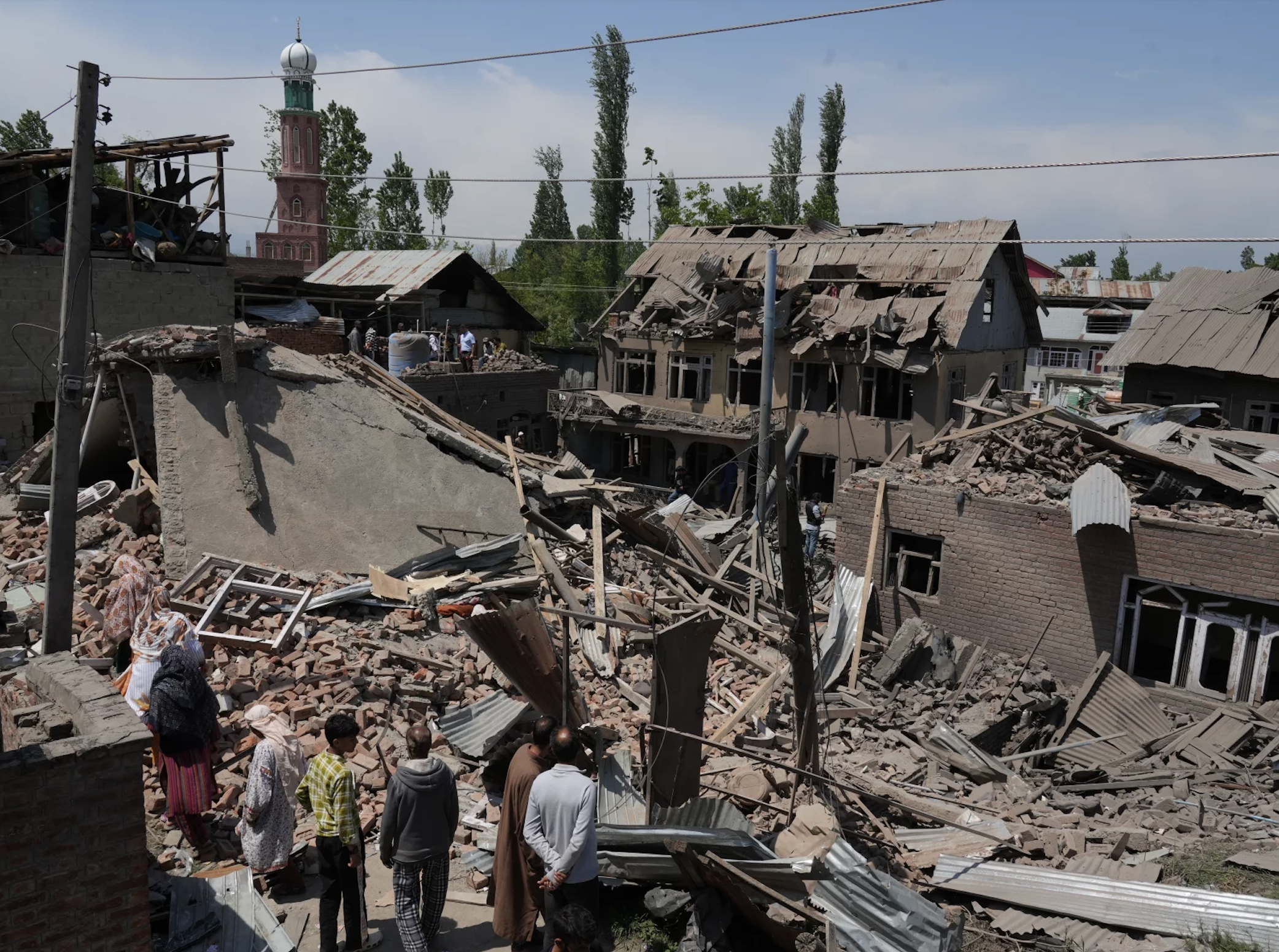
HOBOKEN, N.J. — Audrey Truschke, a professor of South Asian history at Rutgers University, never thought her work could result in death threats and vicious vitriol.
Yet Truschke, a scholar, mom, wife and author of three books, now sometimes needs armed security at public events.
“It felt like the world exploded at me,” said Truschke, pushing back her dark hair to reveal the salt and pepper streaks that frame her face. “This was my first brush with hate email. I’m sure it would seem like nothing to me now.”
Far-right Hindu nationalism, also referred to as Hindutva, is a political and extremist ideology that advocates for Hindu supremacy and seeks to transform a secular and diverse India into an ethnoreligious Hindu state. Hindu nationalism has been around for over 100 years and was initially inspired by ethnonationalism movements in early 20th-century Europe, including those in Germany and Italy. Champions of Hindutva have viciously targeted religious minorities including Muslims, Christians and Sikhs, and have sought to silence critics such as academics and activists.
People impacted by Hindutva in the U.S. say the movement has crept into their hometowns and workplaces, making life more dangerous for them and threatening to make their communities less diverse and tolerant. The ideology has deep ties to white nationalist movements across the globe, and the targets of nationalist groups warn that the impact could be deadly if Hindutva is not addressed and defeated.
“We see Hindu nationalism as an ideology which seeks to transform India from a pluralistic secular democracy to a Hindu state in which non-Hindus are seen at best as second-class citizens and at worst targets for extermination and disenfranchisement of all sorts,” said Nikhil Mandalaparthy, the deputy executive director of Hindus for Human Rights, a nonprofit organization dedicated to promoting pluralism and human rights in South Asia and in the U.S.
“It’s a vision that we think is in direct opposition to a lot of the values of Hindu religious traditions,” he added.
A Different Kind Of Extremism
In India, Hindu nationalism can be traced back to the 1920s. The formation of the Rashtriya Swayamsevak Sangh, or RSS, in 1925 fortified the core belief in a Hindu state for Hindus, despite India’s secular constitution and the long history of ethnic and religious minorities in the country. The RSS has been banned three times since it was established, including after a former party member assassinated Mahatma Gandhi in 1948.
It was out of the RSS that India’s ruling political party, the Bharatiya Janata Party, or BJP, emerged. It has held power since Prime Minister Narendra Modi was elected in 2014.
Since then, the crackdown on India’s minorities, particularly Muslims, has intensified with little to no accountability.
In April, bulldozers razed houses in majority-Muslim neighborhoods under dubious pretenses. Schools have banned Muslim students from wearing a hijab. Courts and government bodies have overturned convictions or withdrawn cases that accused Hindus of involvement in violence against Muslims. Hindu mobs routinely attack Muslims with little to no condemnation from the government.
“Hindu nationalism has redefined the Indian mainstream,” Truschke said. “It’s an incredible success story. Fifty years ago, no respectable Indian wanted to touch it. It was just completely verboten due to the Hindutva embrace of violence and hate, and now it’s the dominant political position in India.”
Other parts of the world, including the U.S., have not been immune to growing support for Hindutva.
Indian Americans make up the second-largest immigrant group in the United States, with nearly 4.2 million people of Indian origin living in the country, according to data from the Carnegie Endowment for International Peace. The community is a diverse one, comprising both immigrants and American-born citizens who come from a variety of religious and socioeconomic backgrounds. The Carnegie poll indicates that at least 54% of Indian Americans report belonging to the Hindu faith, one of the largest and oldest religions in the world. There are about 1 billion Hindus around the world, and nearly 94% live in India. Around 2.5 million Hindus reside in the U.S. alone.
In many ways, the rise of Hindu nationalism mirrors the rise of white nationalist extremism.
This story was originally published in huffpost.com . Read the full story here





